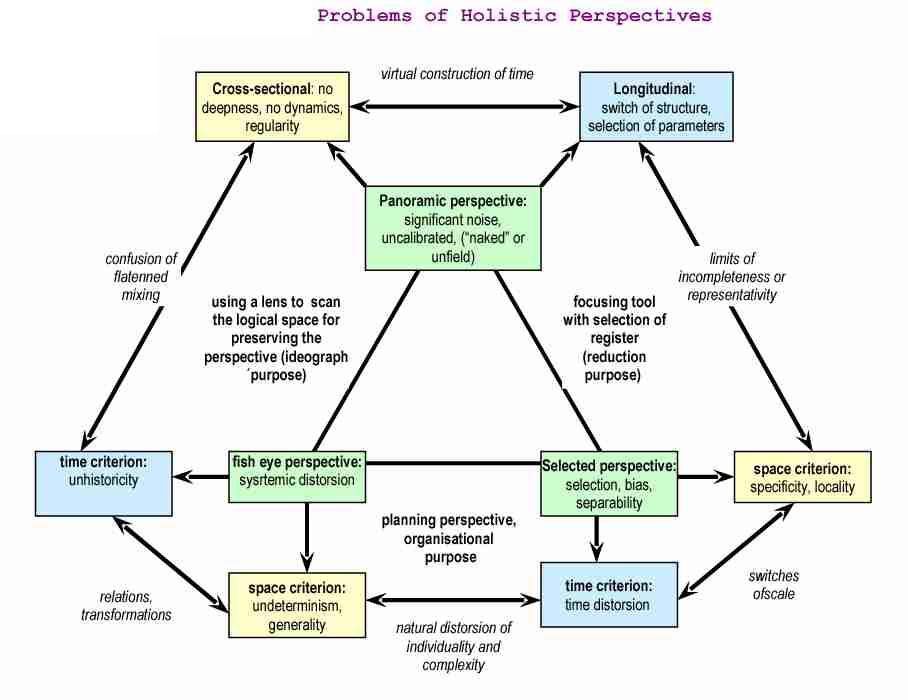Wholism Problems of Representation
Holism often suffers of shortsightedness. At first with good intentions it commonly lacks of specificity out the areas of individual practical expertise (be them even only in the lone rhetoretic of one great guru). It is also often affected by denial of methodological tools, poor design of tools that could serve their perspective, sort of esoterical reasons, no less far from common reductionism than many of their 'ennemies', and strong reductions for the sake of words of narrow minded tautological definitions; rejecting many real mixtures of natural behaviors.
Wholism if could be an alternative concept would be the fair intent of a holistic perspective, not refusing science(s) even formal ones but replacing and focusing on essentials close to human issues with perspective as far as we can; aware of complexities. Convinced also that better methdological developments exist, can be scientific, non reducing requiring to be economically employed while not for just ignoring complexities.

So wholism can also be a reductionnism; especially when considering the enormous diversity of specialisms and the practice of multidisciplinarity that is turning strategic game of domination, with collegialism means and much more poorer democratic methods of participation for undemocratic means of management.
For an exploration of potential defects of 'wholism' examine above olicognograph for sorts of 'regular biases'. Managing ideas as often from the center and outward, extending chains of composition of arguments.